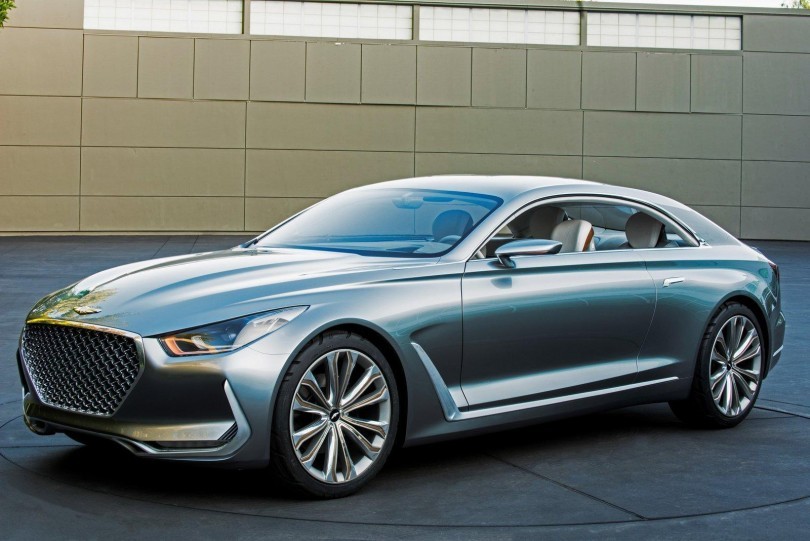When one thinks of luxury automobiles, a name that often surfaces is Genesis. Yet, there’s an intriguing question that tantalizes automobile enthusiasts and casual drivers alike: Is Genesis made by Hyundai? This question not only reflects the curious connections within the automotive world but also compels us to delve deeper into the relationship between these two brands. How does Genesis, with its elegance and sophistication, relate to its more mainstream counterpart, Hyundai? Let’s embark on this journey to unravel the intricacies of the brands.
To understand the relationship between Genesis and Hyundai, we must first consider the origins of both. Genesis was initially introduced as a luxurious version of the Hyundai line-up in 2008 with the launch of the Hyundai Genesis sedan. But unlike typical sub-brands that merely spray a coat of paint on their parent company’s offerings, Genesis aimed to embody a completely distinct identity—one that blends opulence with performance.
Hyundai recognized the potential of this distinct luxury segment and decided to bifurcate its offerings. In 2015, Genesis emerged as a standalone luxury brand. This strategic move allowed Hyundai to focus on building a brand identity for Genesis, differentiating it in a saturated market where luxury vehicles often boast a storied heritage. Through this separation, Genesis could cultivate an image steeped in elegance while still benefitting from the engineering prowess and reliability that Hyundai is known for. It’s almost akin to a proud parent allowing their child to spread their wings while still providing a sturdy foundation.
Now, this connection raises an essential point for potential buyers: what does it mean for the quality and performance of Genesis vehicles? One might ponder, does being a product of Hyundai diminish the ‘luxury’ label associated with Genesis? Or, conversely, does it enhance it by providing a strong backing of automotive engineering and reliability?
Delving into the performance and design aspects, it becomes evident that Genesis vehicles are crafted with a distinct emphasis on luxury. Models such as the Genesis G80 and G90 come equipped with an impressive array of features including high-end interiors, advanced technology, and refined performance capabilities. Yet, beneath their elegant exteriors lies the robust hardware that Hyundai has perfected over the years. The collaboration of these two brands results in vehicles that deliver both luxury and dependable engineering without compromise.
Moreover, the Genesis design philosophy is something to behold. It strikes a unique balance between modern design aesthetics and the traditional elements that evoke a sense of automotive nobility. The prominent ‘Crest’ grille and the ‘Two-Line’ lighting signature are trademarks that set Genesis apart from the Hyundai line-up visually, showcasing its individuality while subtly nodding to its roots. Thus, as you slide into the plush leather seats of a Genesis, an experience unfolds that’s unmistakably distinct yet inextricably linked to Hyundai’s craftsmanship.
One of the most significant advantages Genesis can claim due to its Hyundai heritage is value. While luxury vehicles from competitors often come with eye-watering price tags, Genesis has positioned itself as a more affordable luxury alternative without skimping on quality. It masterfully blends opulence with practicality, allowing consumers access to features typically found in much pricier automobiles. So, is it possible that the very connection to Hyundai—which often emphasizes value and reliability—enhances, rather than detracts from, the Genesis brand?
Furthermore, the customer service experience that Genesis offers cannot be overlooked. The luxury brand has made commendable strides to redefine how customers perceive luxury ownership, offering services like the Genesis Concierge for personalized assistance, as well as a pioneering warranty program unique to its segment. Such considerations stem from the ethos of Hyundai, a company known for its customer-centric approach. Thus, buyers can indulge in the luxury of a Genesis without the usual worries of ownership.
However, transitioning from the Hyundai brand to Genesis does pose a challenge in terms of brand perception. The luxury automobile market thrives on established histories and prestige. Entering this market requires not just exceptional vehicles but also an identity that resonates with aspirational buyers. Genesis must continuously reinforce its luxury credentials while simultaneously leveraging its versatile mother brand identity.
In essence, the challenge lies in maintaining a delicate balance. Will Genesis be able to establish a premium mark distinct from Hyundai while still embracing its roots? The automotive landscape is ever-evolving, and the ability to adapt will determine Genesis’s long-term success. So, as you ponder the question, “Is Genesis made by Hyundai?” it’s essential to recognize the nuance behind that inquiry.
To summarize, while Genesis is, indeed, a product of Hyundai, it has carved a niche for itself within the automotive industry. By fostering a unique brand identity while leveraging Hyundai’s extensive experience and engineering prowess, Genesis stands poised at the intersection of luxury and practicality. As the distinction between the two brands continues to evolve, one thing remains clear: the journey of discovering the relationship between Genesis and Hyundai is as enriching as driving one of their exceptional vehicles.
